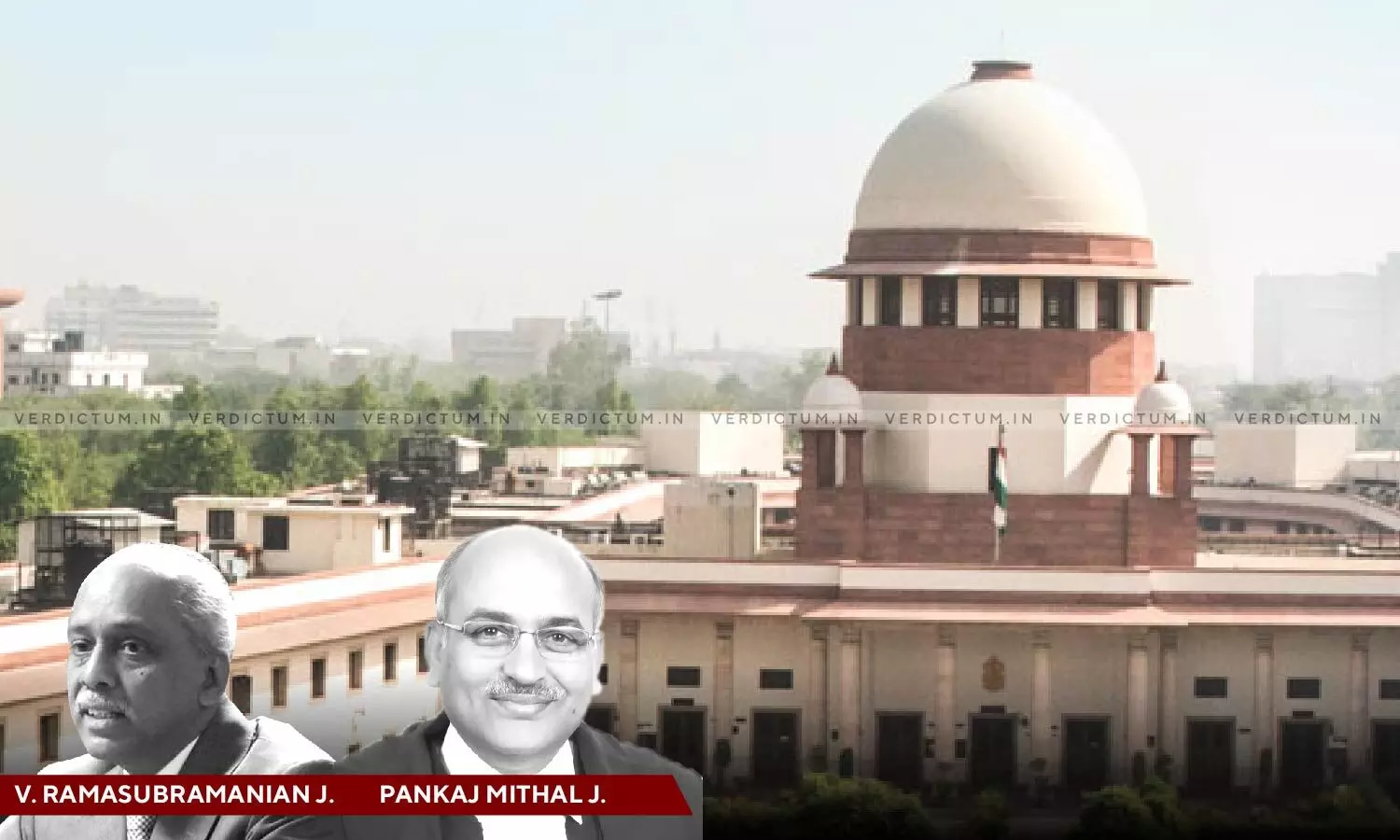
Ouster Of Jurisdiction Of Civil Court Cannot Have Retrospective Effect Annulling Decree Validly Passed By Civil Court: SC
 |
|The Supreme Court has held that the ouster of jurisdiction of the civil court can be expressed or implied, but it cannot have a retrospective effect annulling a decree validly passed by the civil court.
The Court was dealing with an appeal challenging the judgment passed by the Bombay High Court, Goa that confirmed the judgment and decrees of the Trial and Appellate Court ordering the eviction of the appellant.
The Bench of Justice V. Ramasubramanian and Justice Pankaj Mithal said, “It is settled law that ouster of jurisdiction of civil court can be expressed or implied, but it cannot have retrospective effect annulling a decree validly passed by the civil court. Therefore, we do not find any error of law on the part of the High Court in confirming the concurrent judgment and decrees of the Trial Court and the first Appellate Court.”
The legal representatives in this matter were claiming mundkarial rights in respect of the property in dispute.
Advocate Ananya Mukherjee appeared for the appellant.
In this case, the legal representatives of the original appellant claimed to have acquired mundkar rights in respect of the subject property several decades ago. The respondents i.e., the landlords filed a civil suit way back in the year 1970 seeking eviction of the original appellant. Thereafter, the Trial Court decreed the suit and directed delivery of possession due to which the original appellant filed a case in the District Court.
The appeal was dismissed by the first appellate court and the same was challenged by the appellant by way of a second appeal before the High Court. The High Court dismissed the second appeal on the short ground that there was no perversity in the appreciation of evidence by both the courts below and that there was no substantial question of law arising in the second appeal.
The Supreme Court in view of the aforementioned facts noted, “The main thrust of the argument of the learned counsel for the Appellant is that under Section 31(2) of the Goa, Daman and Diu Mundakars (Protection from Eviction) Act, 1975 (hereinafter referred to as ‘Act’), the jurisdiction of the Civil Court is barred. It is the contention of the learned counsel for the Appellant that the fact that the Appellant was a mundkar, within the definition of expression under Section 2(p) of the Act, is admitted even by the Respondent-the original owners and that, therefore, all the three courts exercised a jurisdiction completely contrary to Section 31(2) of the Act.”
The Court further observed that the aforesaid argument of the counsel for the appellant was well-founded and that the respondents filed the suit for declaration and eviction way back in the year 1970.
“… the Act under which the civil court’s jurisdiction was barred, came into force after the decree was passed by the Trial 2 Court in the suit for eviction filed by the Respondent”, the Court said.
Accordingly, the Apex Court dismissed the appeal.
Cause Title- Ananta Chandrakant Bhonsule(D)By LRS. & Anr. v. Trivikram Atmaram Korjuenkar(D) By LRS. & Anr.
Click here to read/download the Order